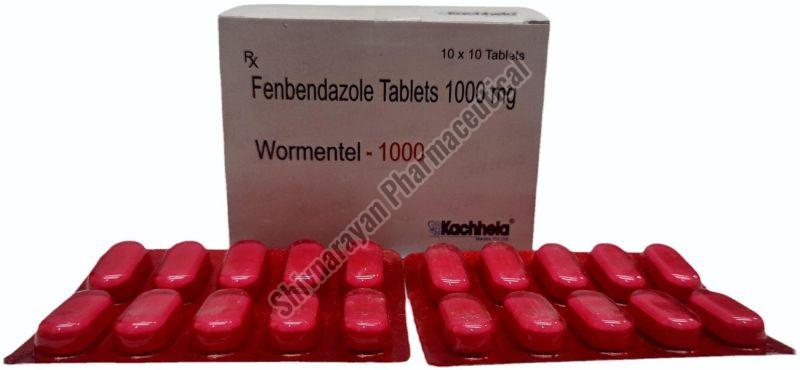fenbendazole 444: Dosage Guidelines You Should Follow
Recognizing the Benefits and Uses of Fenbendazole in Vet Medicine
Fenbendazole has actually established itself as a vital anthelmintic in vet medicine. Its capability to target various parasitic infections makes it a valuable tool for vets. The medication's mechanism interrupts vital mobile procedures in parasites, leading to reliable therapy results. Nonetheless, its security profile varies in between types, necessitating cautious factor to consider in its usage. Comprehending these characteristics can shed light on fenbendazole's wider implications in vet care and ongoing study into its possible past conventional applications
Device of Activity of Fenbendazole

Common Parasitical Infections Dealt With With Fenbendazole
A variety of parasitic infections are efficiently treated with fenbendazole, making it a functional choice in vet medicine. This anthelmintic representative is especially effective versus nematodes, including roundworms and hookworms, which generally affect pet dogs and felines. It is likewise utilized for the treatment of cestodes, such as tapeworms, giving a wide spectrum of activity against both types of intestinal tract bloodsuckers. Additionally, fenbendazole is helpful in handling infections caused by protozoa, especially Giardia, which can cause stomach distress in animals. Its efficacy extends to dealing with certain lungworms in canines and felines, addressing respiratory health worries connected to these parasites. Generally, fenbendazole's capability to target several parasitic types makes it a valuable device in vet technique, guaranteeing the health and wellness of family pets affected by these common infections.
Safety and security and Effectiveness in Different Pet Species
The safety and security and efficacy of fenbendazole differ among different animal types, underscoring the significance of species-specific factors to consider in veterinary medication. In canines, fenbendazole is normally well-tolerated and reliable against a range of intestinal bloodsuckers, consisting of roundworms and hookworms. For felines, however, its use is much less common and might call for cautious application due to potential adverse reactions.
In livestock, such as cattle and lamb, fenbendazole shows effectiveness against various endoparasites, adding to improved health and wellness and productivity. The pharmacokinetics and prospective side impacts can vary substantially between types, demanding careful evaluation by veterinarians.
Equines also respond positively to fenbendazole, specifically for dealing with strongyles and ascarids, though dosage and administration paths must be tailored to their unique physiology. Subsequently, understanding these differences is important for maximizing therapy outcomes and making certain animal welfare across diverse types.
Administration and Dose Standards
Correct administration and dosage guidelines are essential for maximizing the restorative effects of fenbendazole while decreasing possible negative effects. The dose typically varies depending upon the types being treated, the specific problem, and the formulation of fenbendazole utilized. fenbendazole capsules. For dogs and felines, a typical dose is 50 mg/kg body weight, provided daily for three consecutive days, however veterinarians might adjust this based on individual health and wellness evaluations
It is vital to administer fenbendazole with food to improve absorption and reduce gastrointestinal trouble. The drug is available in numerous forms, consisting of granules and paste, enabling for versatile administration options. Monitoring the animal's action during and after treatment is advisable to verify efficacy and safety. In addition, vet support is vital to establish the ideal period of therapy based on the kind of parasitical infection being addressed, assuring optimal outcomes for the pet's health.
Future Perspectives and Research Study on Fenbendazole
Study on fenbendazole continues to progress, concentrating on its possible applications beyond conventional antiparasitic usages. Recent studies have actually discovered its effectiveness in dealing with various forms of cancer, specifically in veterinary oncology. Preliminary data recommend that fenbendazole may hinder the growth of lump cells and improve the results of other chemotherapeutic agents.
Additionally, scientists are investigating its function in handling stomach conditions in animals, highlighting its anti-inflammatory buildings. The adaptability of fenbendazole for different types increases questions regarding its safety and security profiles and ideal application routines in varied populations.
As passion expands, there is a need for extensive clinical trials to develop evidence-based guidelines for these unique applications. Future research might additionally explore the devices behind fenbendazole's results, possibly paving the method for cutting-edge healing strategies in vet medicine. The recurring exploration of fenbendazole could considerably improve treatment choices for various veterinary conditions.

Regularly Asked Questions
Is Fenbendazole Safe for Pregnant Animals?
The security of fenbendazole for expectant pets stays unpredictable. While some studies suggest minimal risk, vets typically recommend care and usually encourage against its use while pregnant unless the benefits plainly surpass prospective threats.
Can Fenbendazole Be Made Use Of in Livestock?
Fenbendazole is typically utilized in animals to treat various parasitical infections. fenbendazole. Its effectiveness versus gastrointestinal worms makes it a useful anthelmintic, adding to improved health and wellness and productivity in pets elevated for food and fiber
What Are the Side Effects of Fenbendazole?

The side results of fenbendazole might include stomach disturbances, sleepiness, and sensitive responses. In unusual cases, more serious responses might take place, requiring careful tracking and assessment with a veterinarian throughout treatment.
Exactly How Does Fenbendazole Compare to Other Dewormers?
Fenbendazole uses broad-spectrum efficacy against numerous bloodsuckers, commonly contrasting favorably to various other dewormers. Its unique system targets different life phases, making it efficient, while usually offering a beneficial security account compared to choices available on the marketplace.
Can Fenbendazole Be Used for Treating Cancer Cells in Animals?
The capacity of fenbendazole in treating cancer cells in animals has gathered passion. Preliminary research studies recommend it might hinder cancer cells cell development, yet even more research study is essential to confirm its efficacy 222 mg and safety in veterinary oncology.